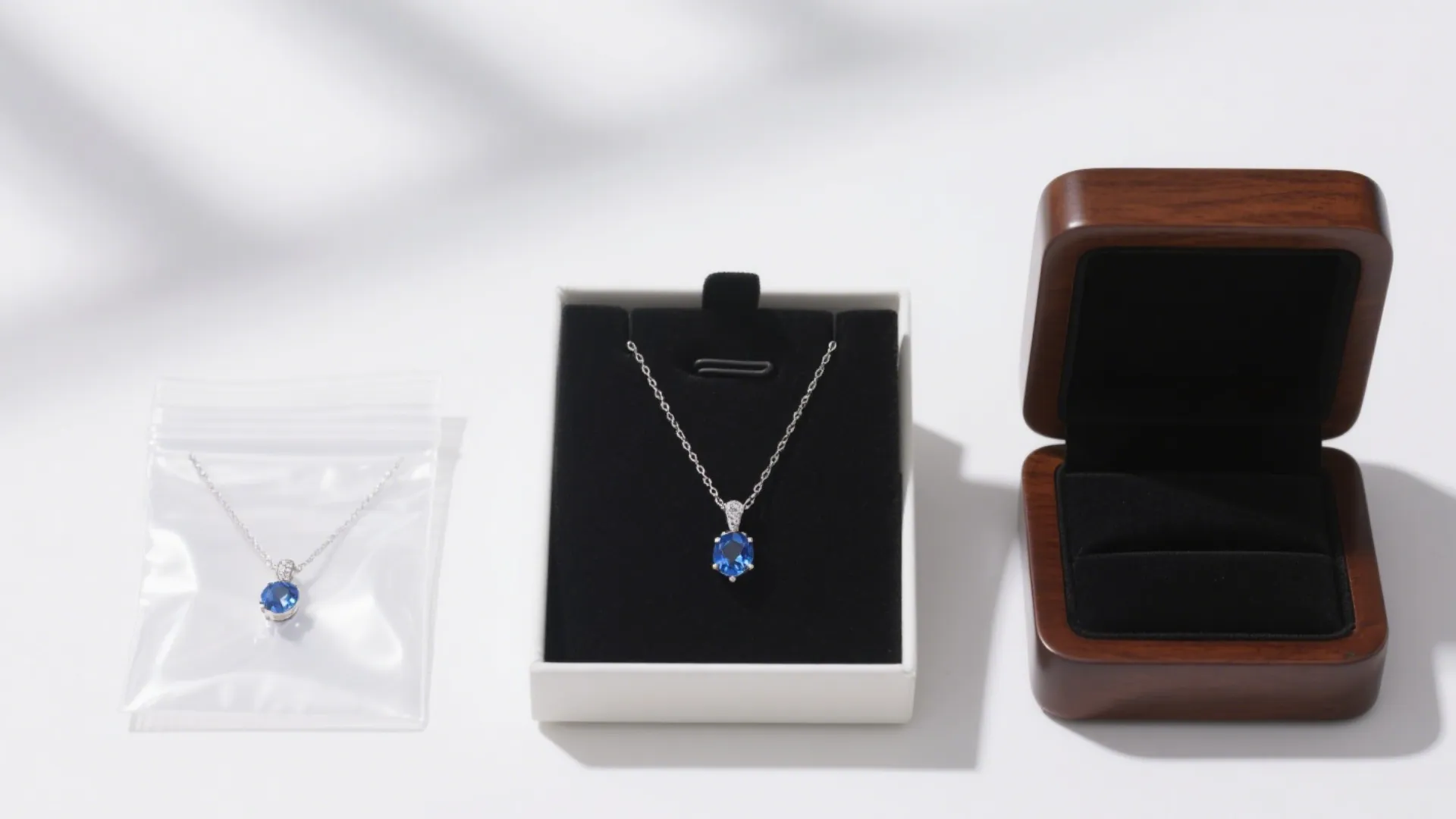
2025 Your Definitive Guide to Necklace Packaging Ideas
2025-07-11
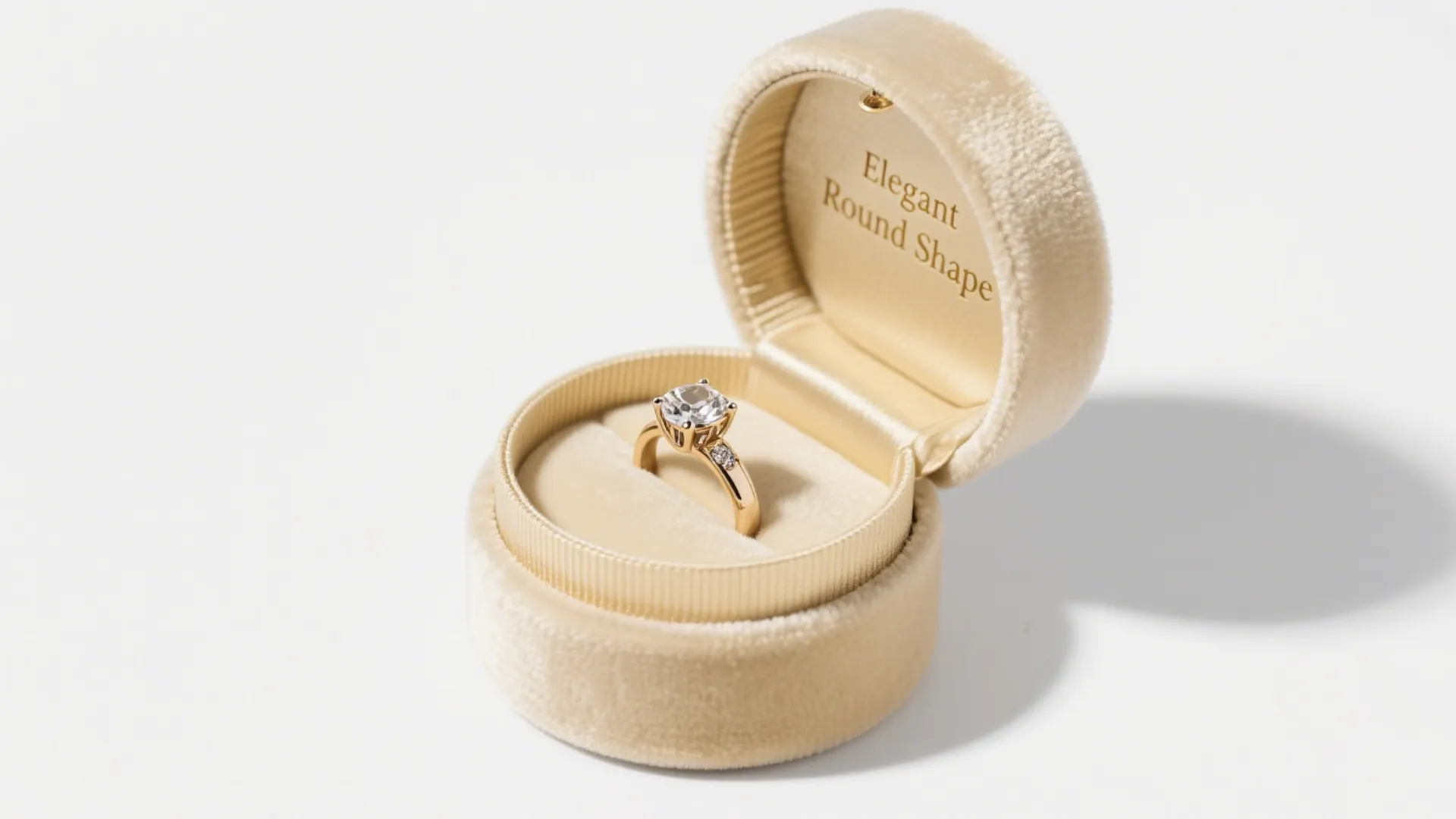
Velvet jewelry boxes are the timeless choice for both luxury and protection. They represent more than just storage; they are a statement of care for your most cherished items. In this guide, we will explore why velvet is the superior material for jewelry packaging, help you choose the perfect box for your collection, and share our expert tips on crafting and care. As a team that has designed and manufactured high-end packaging for 15+ years, Richpack will cover everything you need to make a confident decision.
When selecting a home for your jewelry, the choice of material is critical. Velvet stands out as the premier option because it uniquely balances practical protection with an unparalleled sense of luxury. It addresses the core needs of every jewelry owner: safeguarding value while enhancing beauty.
The primary function of any jewelry box is protection, and this is where velvet excels. Its structure consists of a dense, evenly cut pile of fibers, creating a soft and forgiving surface. This gentle cushioning acts as a buffer, protecting delicate items like pearls, soft gemstones, and high-polish metals from the scratches and micro-abrasions that can occur in harder storage containers.
One of the biggest concerns for jewelry owners, especially those with silver pieces, is tarnishing. While standard velvet helps by limiting exposure to open air, modern innovations have taken this protection to a new level. Many high-quality jewelry boxes now use specialized anti-tarnish velvet. These fabrics are treated or woven with materials that actively neutralize airborne sulfur gases, which are the primary cause of tarnish. This technology transforms the lining from a passive cushion into an active guardian, significantly extending the brilliance of your jewelry.
Let’s address this directly: High-quality, modern velvet itself does not cause tarnishing. The fear often stems from older, low-quality boxes that might have used acidic glues or dyes. Today, reputable manufacturers use pH-neutral adhesives and stable, colorfast velvets (especially synthetics like polyester) that are completely safe for all precious metals, including silver. The key is to choose a box from a quality supplier. When you see a product labeled “anti-tarnish,” you can be confident it’s actively working to protect your silver, not harm it.
Velvet has a deep connection with luxury. Its soft texture and the way it absorbs and reflects light create a rich visual depth that makes jewelry appear more brilliant and valuable. This enhances the daily ritual of selecting a piece to wear and transforms the act of giving a gift into a memorable event. The tactile satisfaction of opening a velvet lined jewelry box contributes significantly to the overall unboxing experience, a crucial touchpoint for both personal enjoyment and brand perception.
While velvet feels delicate, high-quality synthetic velvets, such as those made from polyester or microfiber, are remarkably durable. They are resistant to abrasion and can maintain their rich color and texture for years with proper care. Unlike materials such as satin, which can easily snag, or felt, which may pill over time, a well-constructed velvet lining offers a long-lasting and reliable home for your treasures.
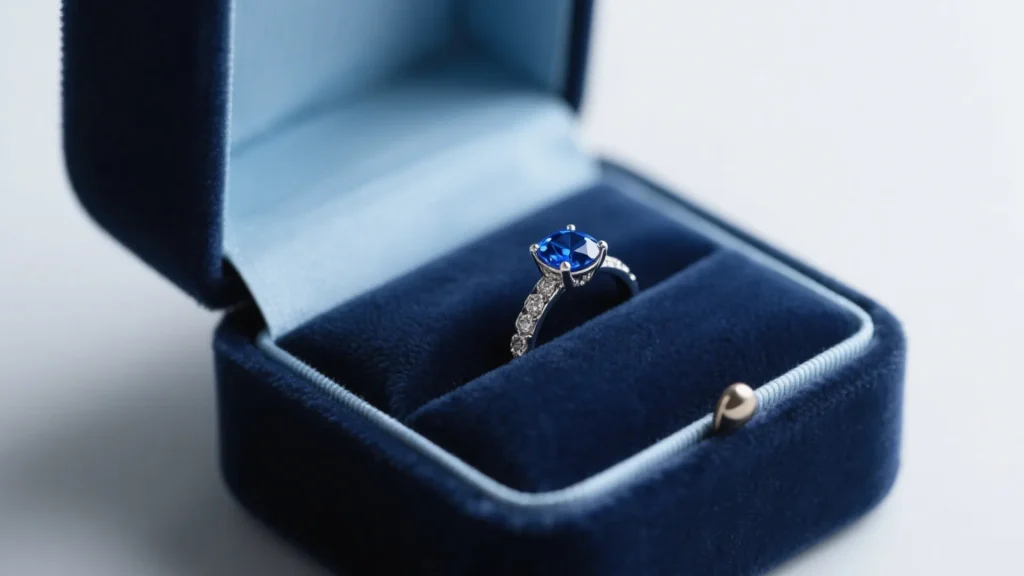
Velvet’s association with luxury is not a modern marketing invention; it is a legacy built over centuries. Understanding its history helps explain why it remains the undisputed standard for presenting valuable items.
The origins of velvet can be traced back to the East, where early forms were woven from silk. When it arrived in Europe via the Silk Road, it quickly became a symbol of extreme wealth and status. During the Renaissance, Italian city-states like Venice and Florence became famous for their velvet production, a history detailed by textile experts. This fabric was so prized that it was reserved for royalty and the highest echelons of the church, used for everything from royal gowns to throne coverings.
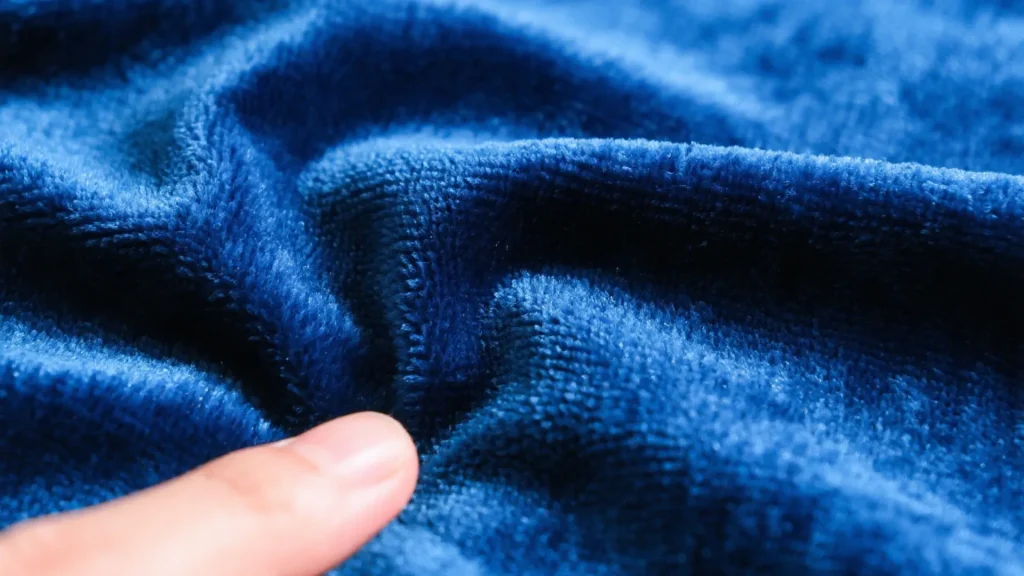
In the 19th century, iconic brands played a pivotal role in solidifying velvet’s place in modern luxury. Tiffany & Co., with its famous blue box often lined with velvet, created a powerful association between the material and significant life moments, particularly engagements. This cemented the velvet box in the public consciousness as the ultimate vessel for something truly precious and meaningful.
Not all velvets are created equal. The term refers to a specific weaving structure, not a single fiber. Knowing the difference is key to selecting a box that meets your needs for luxury, durability, and price. This is the most important consideration when choosing your jewelry box liner material.
Silk velvet is the most luxurious and expensive type of velvet. It has an exceptionally soft feel and a signature “wet look” sheen that is unmatched. However, it is delicate and best suited for high-end, bespoke packaging where aesthetic appeal is the primary concern.
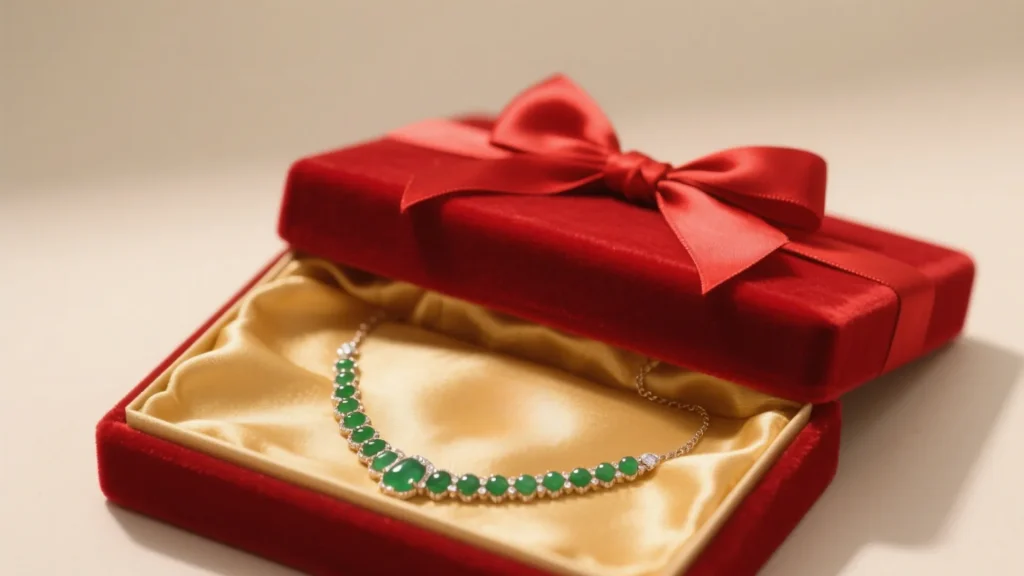
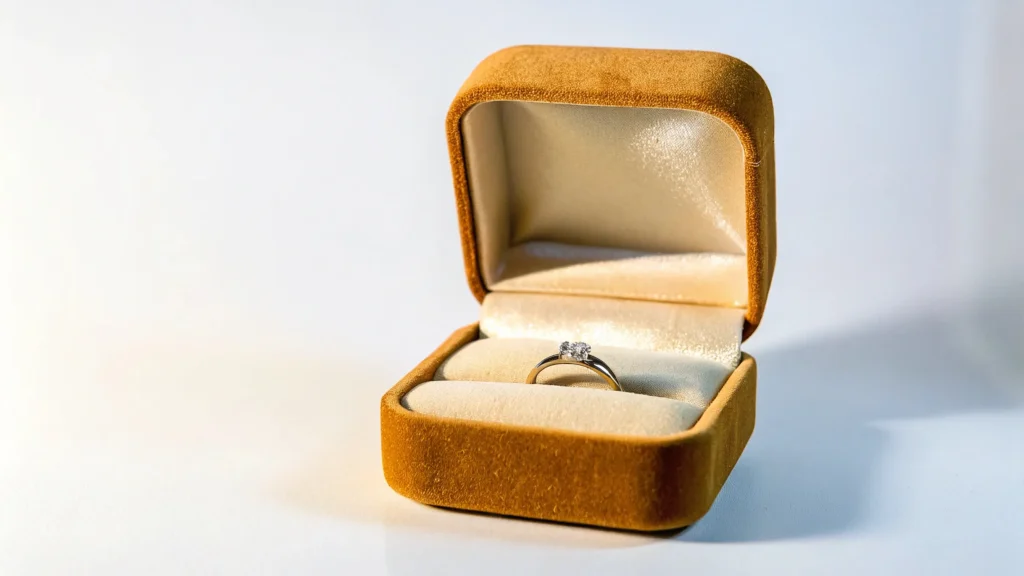
Cotton velvet offers a more matte finish and a sturdier, less drapey feel than silk. It is durable and more affordable, making it a solid choice for traditional and vintage-inspired jewelry boxes that see regular use.
Today, most high-quality jewelry boxes use polyester or microfiber velvet. These synthetic materials are engineered for performance. They offer excellent durability, stain resistance, and colorfastness, all while providing a soft texture that closely mimics natural fibers. They represent the best balance of luxury feel and practical, long-term use.
Rayon velvet is another synthetic option known for imitating the soft drape and luster of silk at a lower cost. It can be quite delicate, but it is a popular choice for fashion-forward packaging where appearance is key.
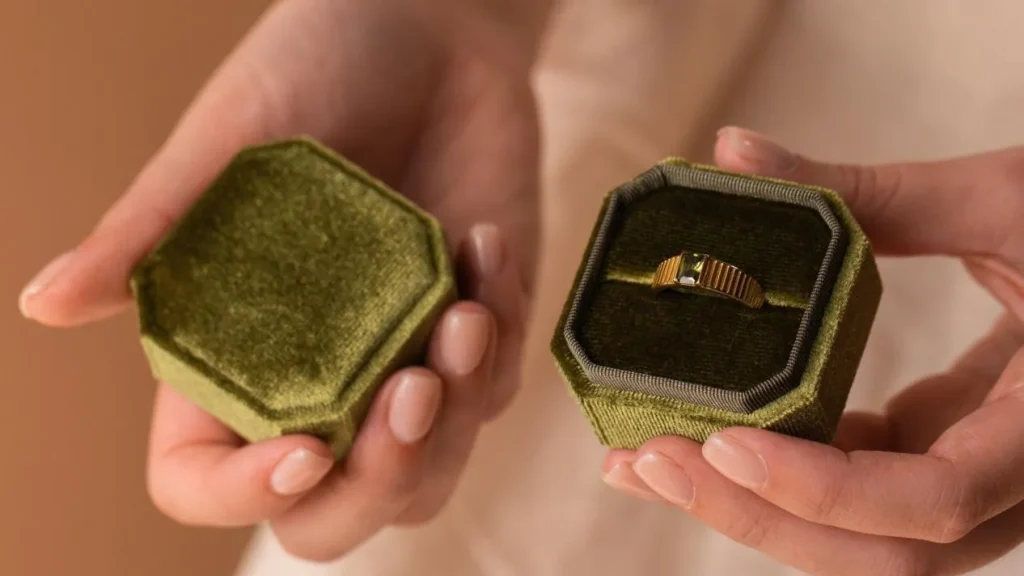
Crushed velvet is treated to create a crinkled, textured surface that catches light from multiple angles, giving it a unique shimmer. It adds a touch of modern or bohemian flair.
This type of velvet is heat-stamped with a pattern, creating a raised or indented design. It offers a way to add intricate, decorative detail to a jewelry box, making it a statement piece in itself.
Velveteen is often confused with velvet, but it is a different fabric. It is typically made of cotton and has a shorter, denser pile with less sheen. While a good budget-friendly option, it does not offer the same level of softness or luxurious appearance as true velvet.
The quality of a velvet jewelry box goes far beyond its surface. As manufacturers, we know that the true measure of a great box lies in its construction. The right techniques and materials ensure it not only looks beautiful but lasts a lifetime.
A durable jewelry box starts with a strong frame. This is typically made from wood, MDF (medium-density fiberboard), or a high-quality rigid paperboard. The choice of material affects the box’s weight, sturdiness, and overall cost.
The most common high-quality method for applying the lining is the panel-based technique. Velvet is first wrapped around precisely cut panels of card or board. These panels are then inserted into the box, resulting in perfectly clean edges and a seamless finish with no risk of glue stains. The process of lining a jewelry box with velvet requires precision, often using specialized adhesive velvet fabric for a clean application. For those looking to tackle this themselves, we offer a complete step-by-step guide on how to line a jewelry box with velvet.
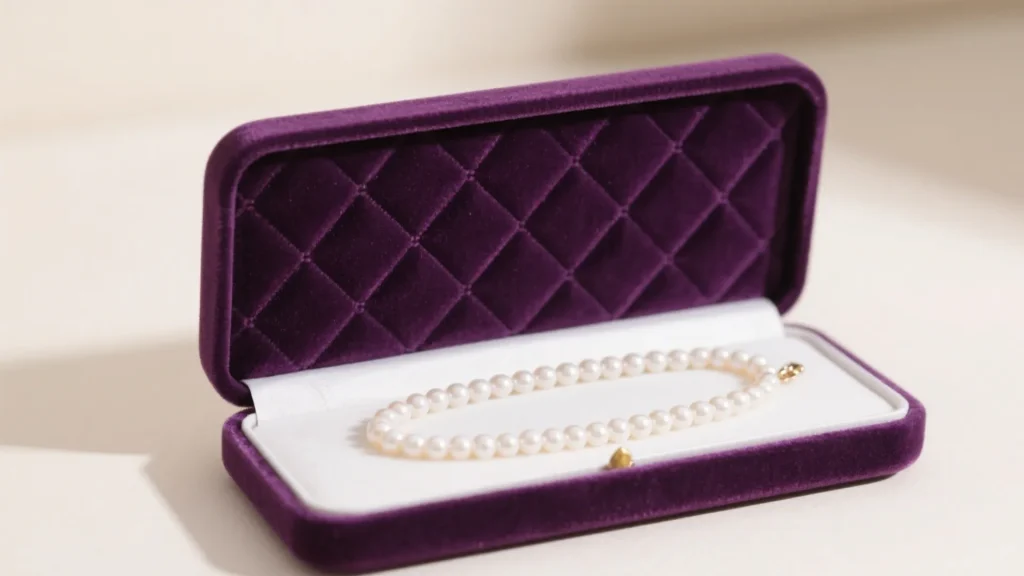
The choice of adhesive is a critical but often overlooked detail. Using the wrong glue can lead to the velvet stiffening, staining, or even peeling away over time. We use specialized, pH-neutral adhesives that create a strong, lasting bond without damaging the delicate velvet fibers or the precious metals they will eventually hold.
The interior components are what make a jewelry box truly functional. Compartments, custom-fit inserts, and soft ring rolls are typically constructed from a base material like foam or board and then meticulously wrapped in velvet. This ensures every piece of jewelry has a snug, secure, and scratch-free spot. When people ask, “What is a velvet ring?”, they are often referring to the soft, slotted foam insert inside the box, designed to hold the ring securely. For brands needing packaging for a unique jewelry collection, working with a strategic partner who understands how to engineer these custom inserts is vital for achieving a perfect fit and an elevated customer experience.
While less common, applying velvet to the exterior of a box creates a fully immersive tactile experience. This technique requires exceptional skill to ensure clean corners and durable seams. It is typically reserved for special editions or high-end display pieces where visual and sensory impact is paramount.
The market is filled with options, making it hard to judge quality and value. Understanding the key differences between price points helps you make an informed decision and avoid disappointment.
High-end boxes (often seen with premium brands) justify their cost through superior materials and craftsmanship. Look for:
A lower price doesn’t have to mean poor quality. A great budget-friendly box prioritizes smart material choices:
Core Materials:
High-quality rigid paperboard or MDF.
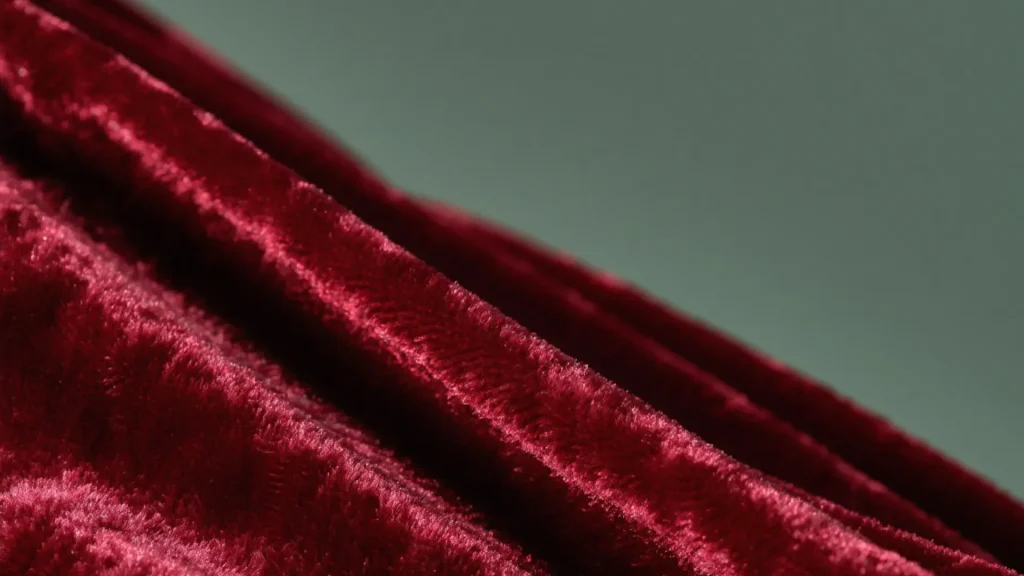
Velvet Type:
Durable and soft polyester or standard microfiber velvet.
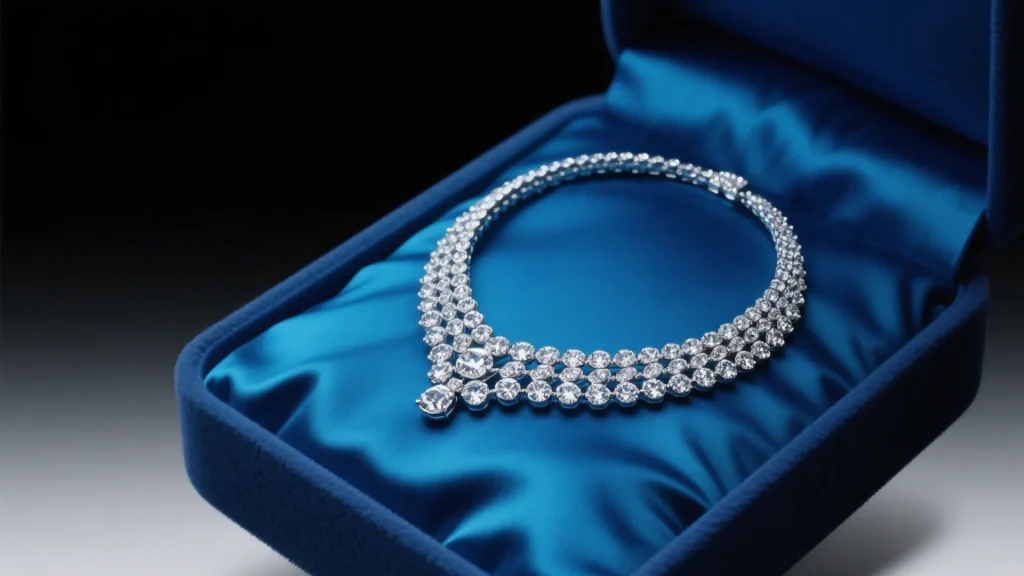
Construction:
Well-executed direct lining with clean adhesive work. The focus is on function and durability over intricate hand-finishing.
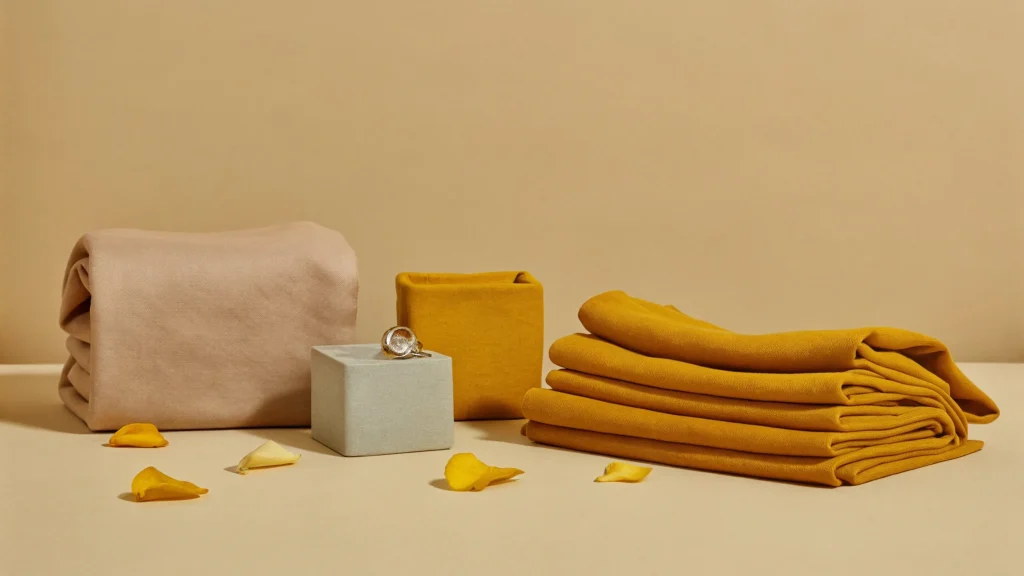
Features:
While they may lack advanced anti-tarnish tech, they should still offer excellent basic protection and a well-designed layout.
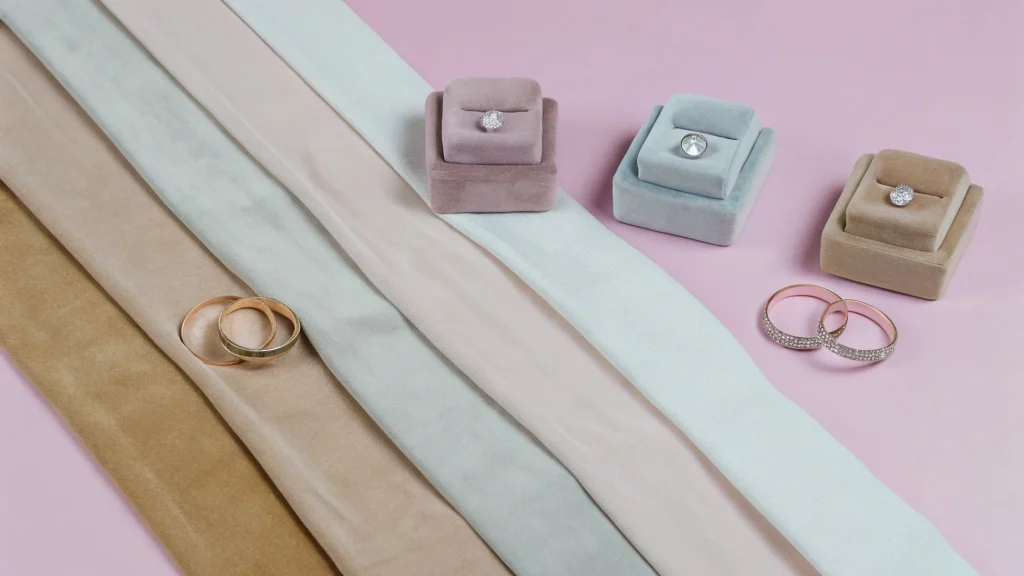
Be wary of boxes with flimsy frames that flex easily, thin or sparse velvet that feels rough, visible glue marks, and poorly fitted compartments. These are signs of a product that won’t adequately protect your jewelry or last over time.
With a foundational understanding of quality, you can now select a box that perfectly suits your needs. We have broken this down by common occasions and the types of jewelry you own.
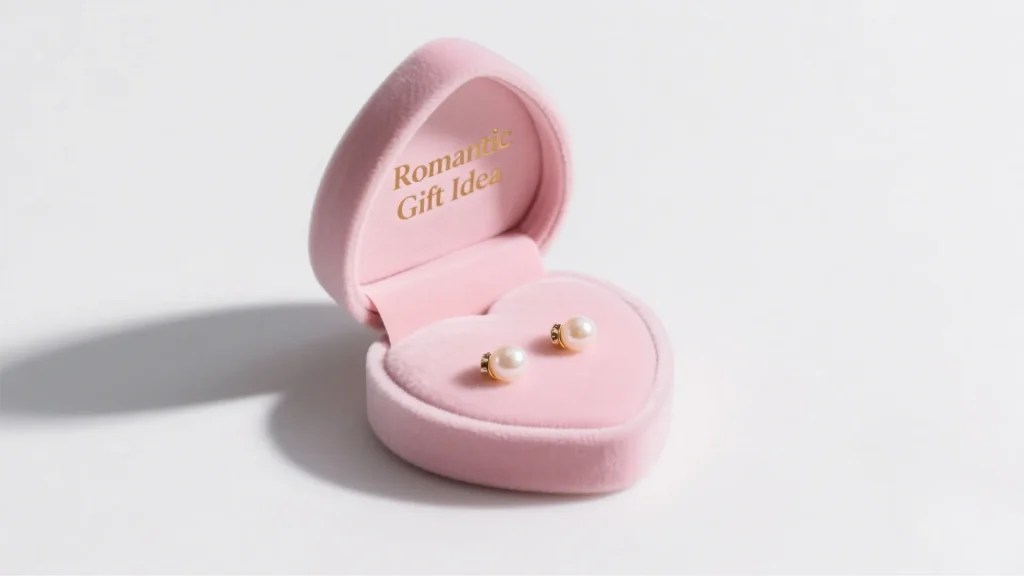
A proposal is a once-in-a-lifetime moment, and the box should reflect that. Classic choices like a hexagonal or square ring box in a deep navy blue, emerald green, or timeless cream white add to the sense of occasion. When considering how thick a velvet ring box is, it’s the craftsmanship and the density of the insert that provide that substantial, high-quality feel.
For romantic milestones, consider colors that symbolize love and passion. A box in a rich burgundy or deep red makes a powerful statement and beautifully complements gold or rose gold jewelry. A vibrant purple velvet jewelry box, for example, can be a unique and passionate choice.
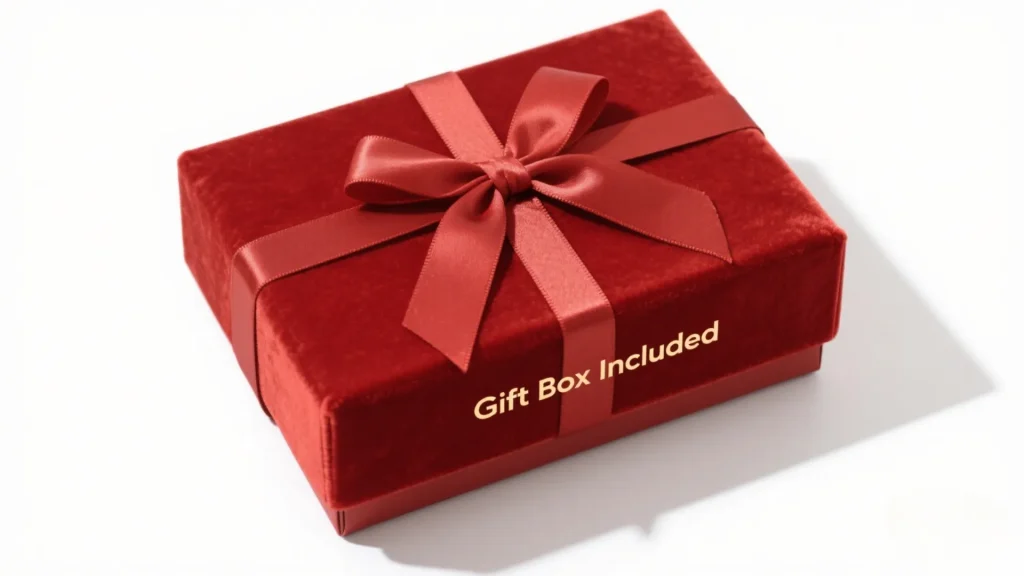
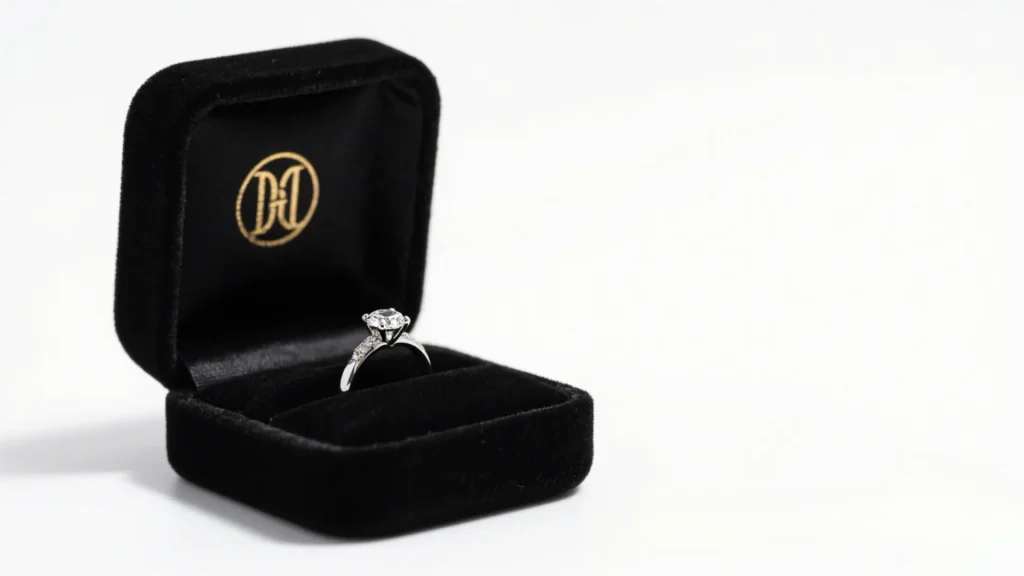
For birthdays or graduations, you can choose colours that reflect the recipient’s personality. Trendy options like dusty rose, sage green, or even a personalized monogrammed box make the gift feel extra thoughtful.
If you have a large collection of rings or stud earrings, look for a box with numerous ring rolls or small, individual compartments. This keeps them organized, visible, and prevents them from scratching each other.
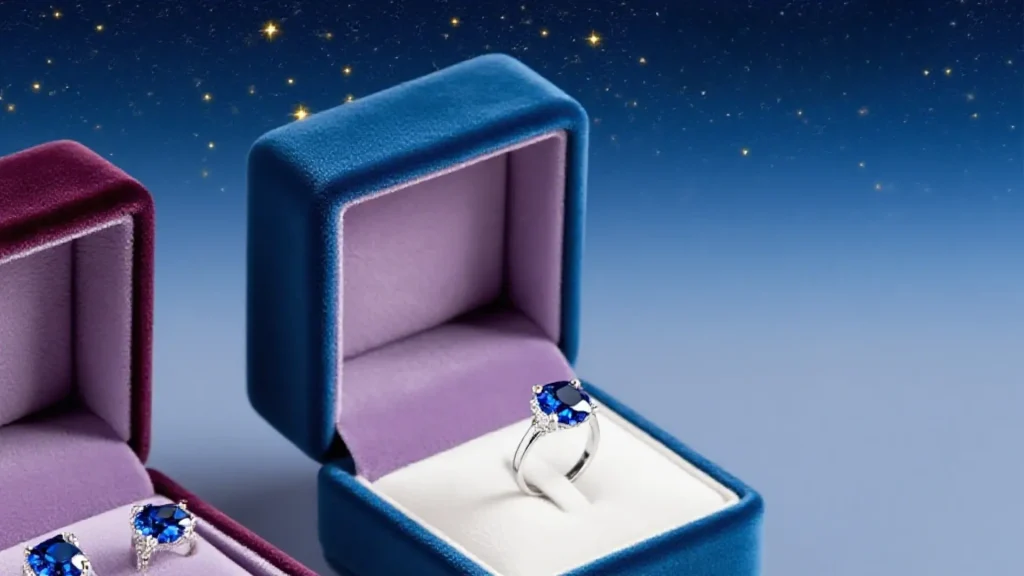
For those with many necklaces, tangling is the biggest enemy. The best solution is a jewelry box with built-in hooks for hanging the chains, along with a pouch at the bottom to catch the pendants.
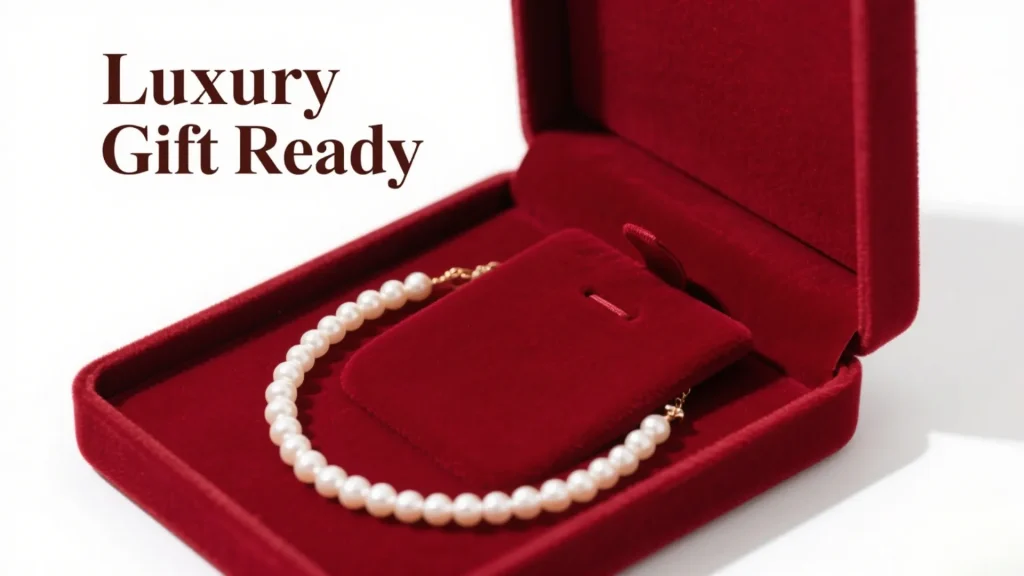
Chunky bracelets, bangles, and watches need more space. Look for boxes with large, open compartments or cushioned pillows. This provides ample room and prevents pressure or damage to the pieces.
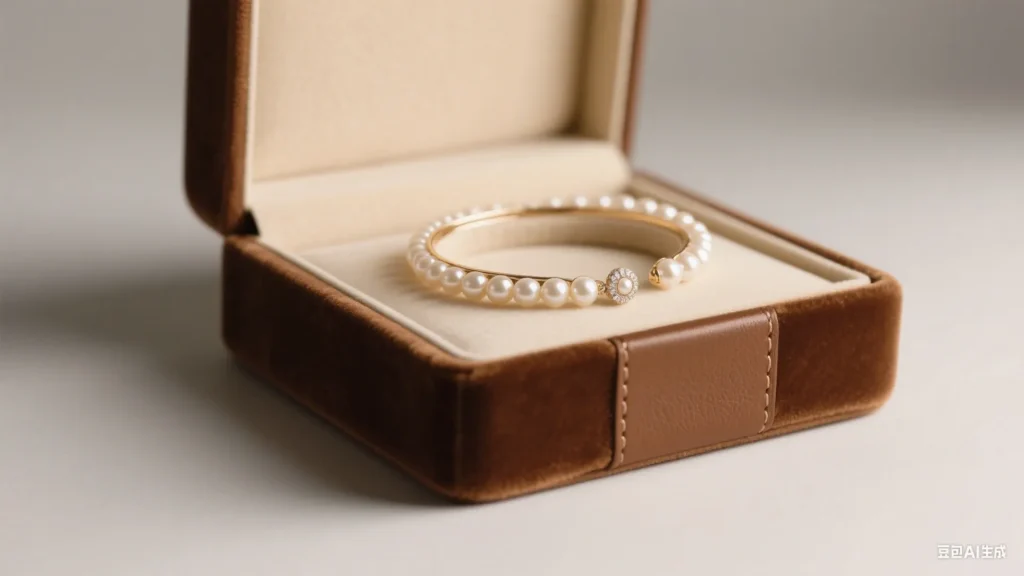
Personalized & Custom Velvet Boxes
For a truly unique touch, consider a monogrammed box or work with a supplier to create a fully custom interior layout tailored perfectly to your collection. This is the ultimate solution for addressing the pain point of mismatched compartments.

Vintage & Antique Styles
If your aesthetic leans towards the romantic and ornate, look for vintage-style boxes with details like metal clasps and rich, deep colors. They serve as beautiful decor pieces on a vanity.
Modern Features
Glass-Tops & Stackable Trays: For those who want to see their collection at a glance, a glass-top box is ideal. Stackable velvet trays are a brilliant, space-saving solution for organizing jewelry within a drawer, giving you a sense of order and control.
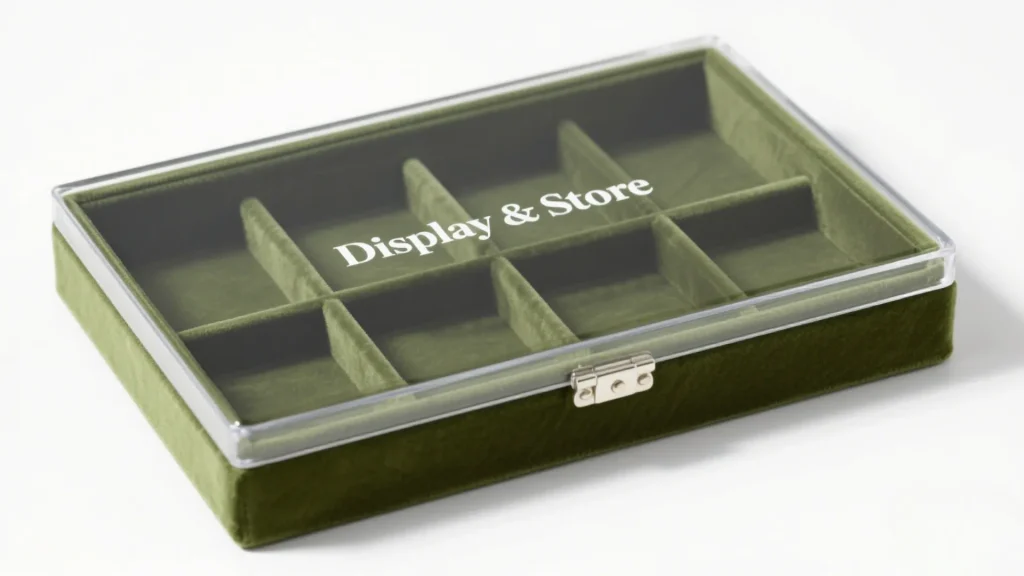
Specific Shapes
Round & Geometric Boxes: Don’t forget to consider the form factor. A classic round velvet box can be a soft, elegant addition to a dresser, while popular hexagonal boxes are perfect for single, statement pieces like an engagement ring.
Sometimes, a standard box isn’t enough. Here’s a look at specialized options designed for specific lifestyles and needs.
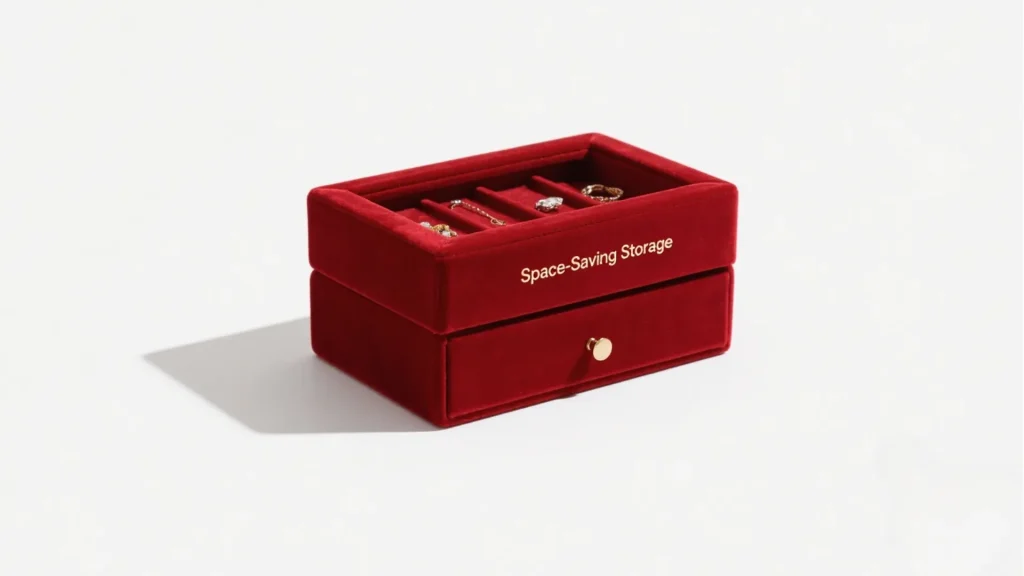
A travel jewelry case is essential for keeping your pieces safe and untangled on the go. Look for compact, sturdy designs with secure closures (like zippers or snaps). The interior should have a mix of small, secured compartments for earrings and rings, and dedicated loops or pouches for necklaces to prevent them from becoming a tangled mess in your luggage.
For those who desire a fully integrated and minimalist storage solution, custom velvet drawer inserts are the answer. These are pre-made or custom-cut trays that fit perfectly inside your dresser or closet drawers, transforming an entire surface into a soft, organized, and luxurious home for your collection. This addresses the desire for a seamless and tidy living space.
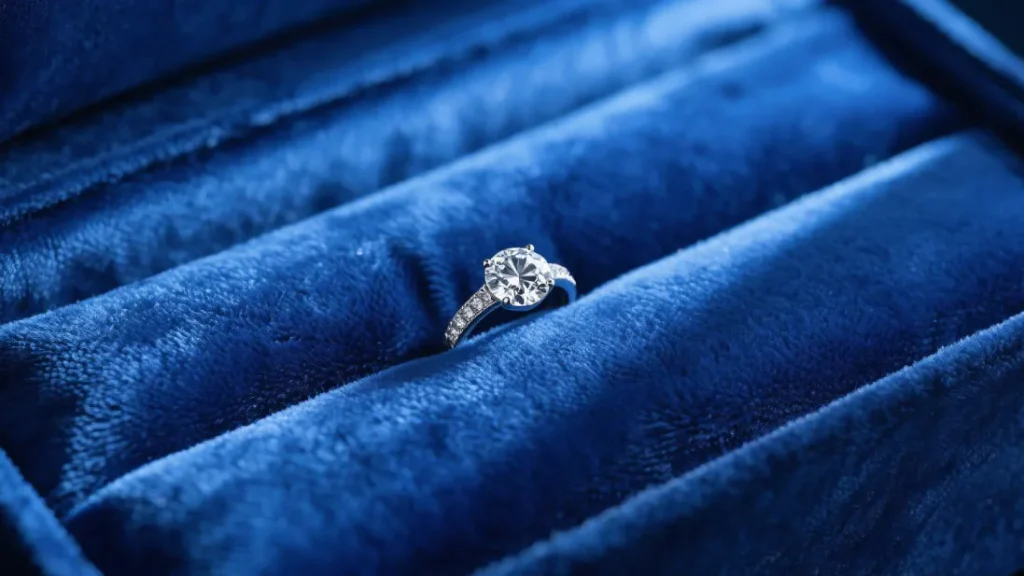
While we believe velvet is the superior choice, it’s helpful to see how it compares to other common lining materials. For an in-depth analysis, you can read our guide on velvety vs. other soft fabric linings and which offers a more premium feel.
Suede has a soft, matte finish but lacks the plush, deep pile of velvet. While it offers good scratch resistance, velvet provides better cushioning. The difference between velvet suede is in this texture and sheen; velvet is lustrous, while suede is flat. Velvet’s luster also tends to make gemstones and metals appear more vibrant.
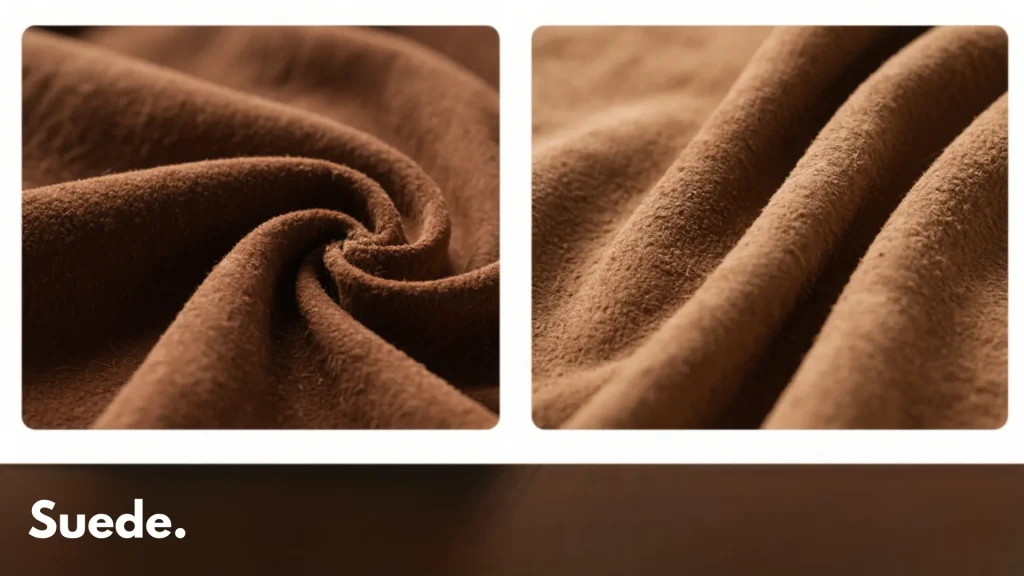
Satin is smooth and glossy but is a flat woven fabric. It offers minimal cushioning and is prone to snagging. Velvet’s dense pile provides far superior protection and its deep color saturation creates a more luxurious backdrop.
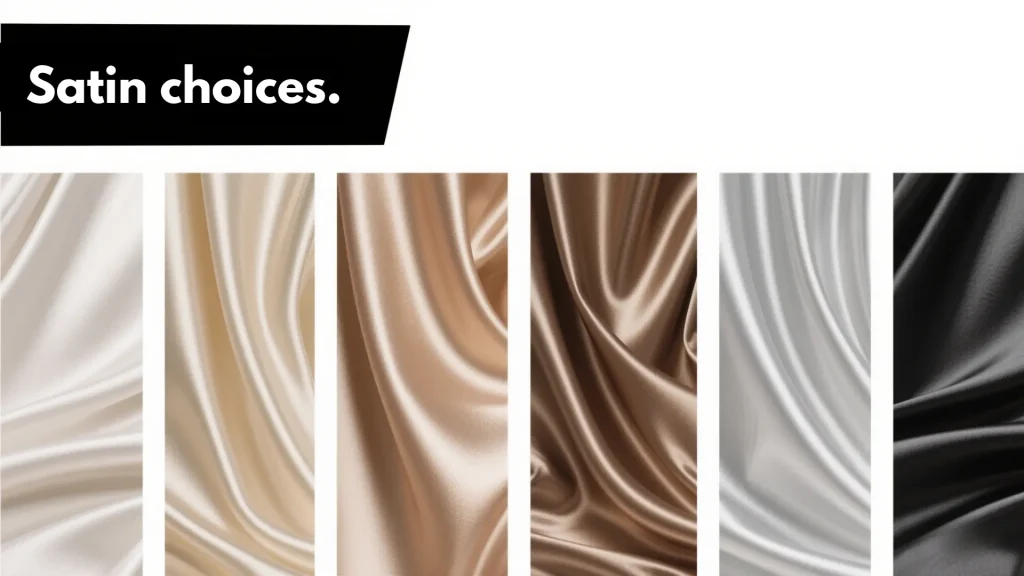
Felt is a budget-friendly, utilitarian option. It prevents scratches but is not as soft as velvet and offers very little cushioning. Over time, felt can also pill and attract lint, whereas quality velvet maintains its integrity.
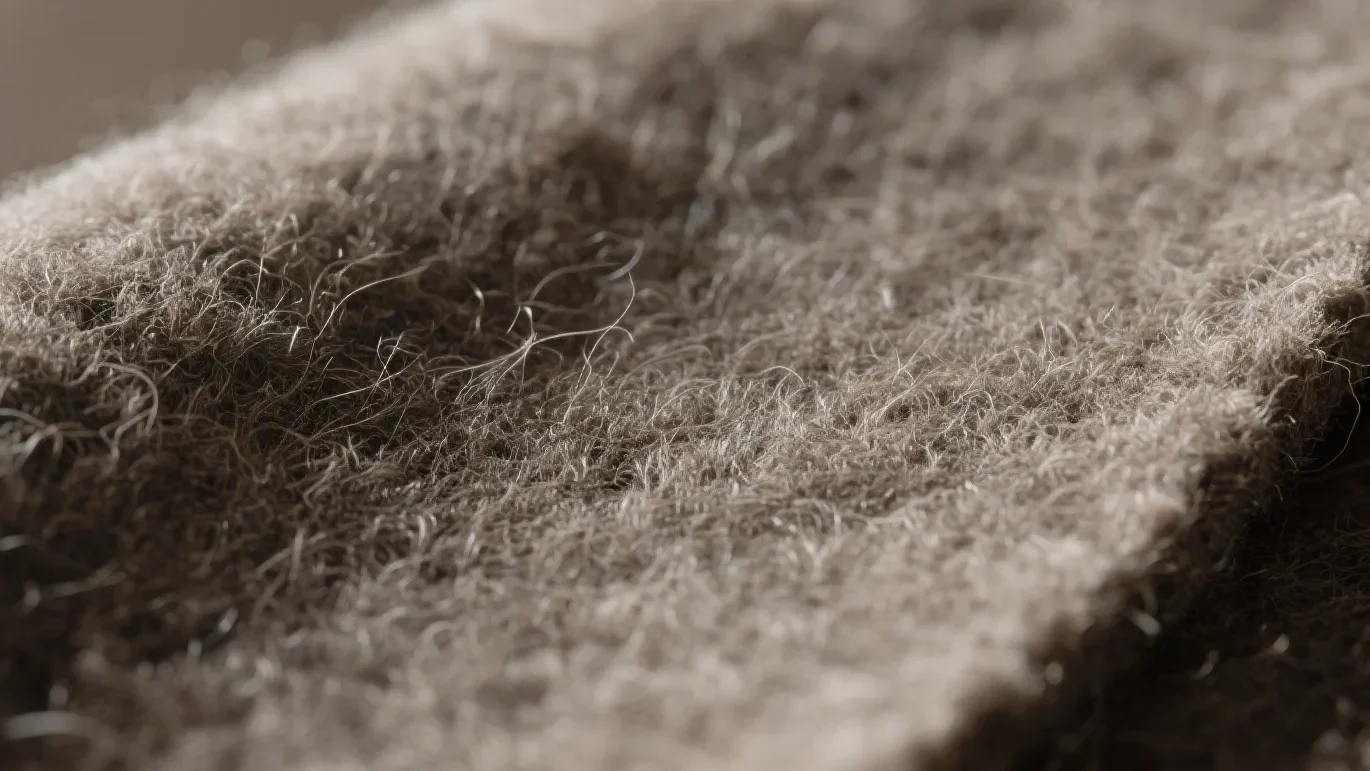
Leather (or faux leather) offers a modern, sleek look and is very durable. However, it provides almost no cushioning. Velvet is the choice for classic opulence and superior protection, while leather is chosen for a minimalist aesthetic and durability.
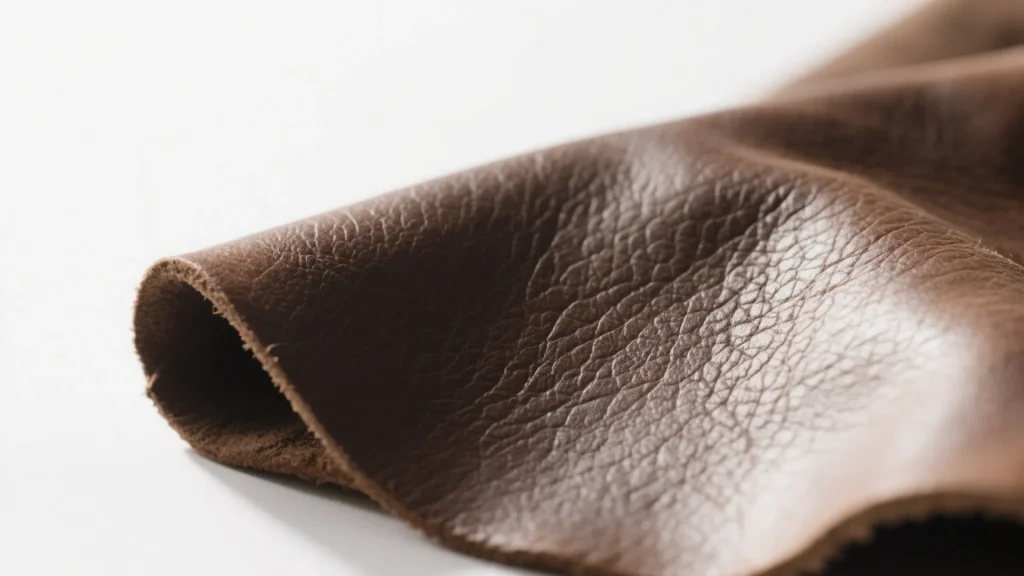
To help you make a quick decision, here is a summary table comparing the most popular materials for lining a jewelry box:
| Material | Texture & Feel | Cushioning Level | Durability | Best For… |
| Velvet | Deep, plush, and soft pile. A rich and opulent look. | Excellent (High) | Medium to High | The ultimate luxury experience, protecting delicate and high-value pieces, and creating a classic presentation. |
| Suede | Soft, napped finish with no pile. A velvety but matte look. | Good (Medium) | Medium | An understated, rustic, or natural luxury feel. Good for scratch resistance with less bulk than velvet. |
| Satin | Perfectly smooth, silky, and glossy. A high-sheen finish. | Low | Medium (Prone to snagging) | A sleek, modern, and high-fashion look. Best for items that don’t require significant cushioning. |
| Felt | Dense, non-woven, and can be slightly rough. A utilitarian and basic look. | Fair (Low to Medium) | Medium to High (Can pill over time) | Budget-friendly projects, DIY linings, basic scratch protection, and utilitarian storage. |
| Leather / Faux Leather | Smooth or textured surface. Sleek, clean, and modern. | Very Low | High to Very High | A minimalist, contemporary aesthetic. Excellent for watch boxes and travel cases where durability is the top priority. |
A jewelry box is also a piece of decor. Here are some popular styles to inspire you, whether you need a single gift box velvet lined or a whole collection.
Vintage-style boxes often feature ornate shapes, detailed metal clasps, and are covered in rich jewel tones like deep burgundy or forest green.
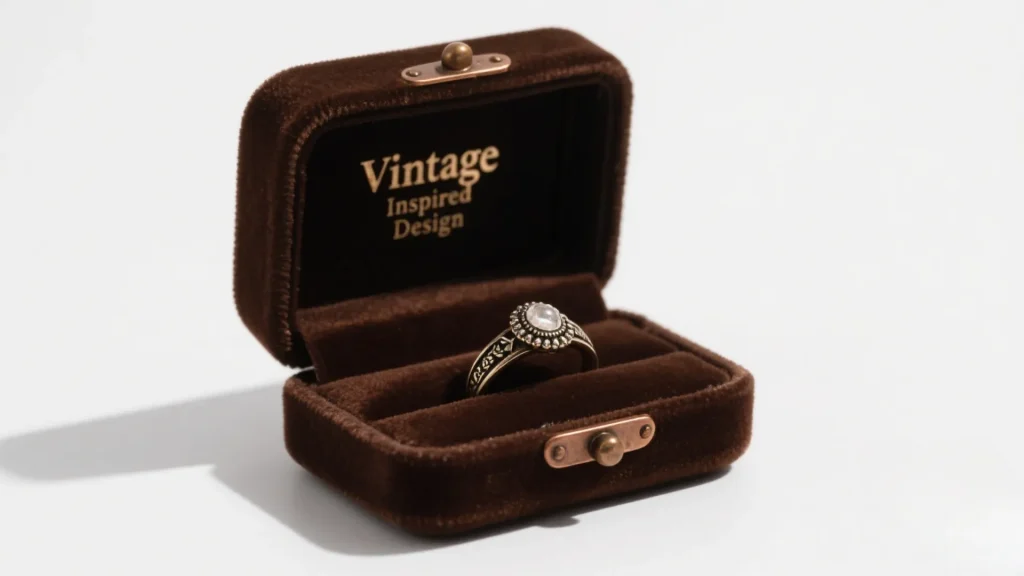
Modern designs focus on clean lines, simple geometric shapes like squares and rectangles, and a neutral color palette of greys, creams, and soft pastels.
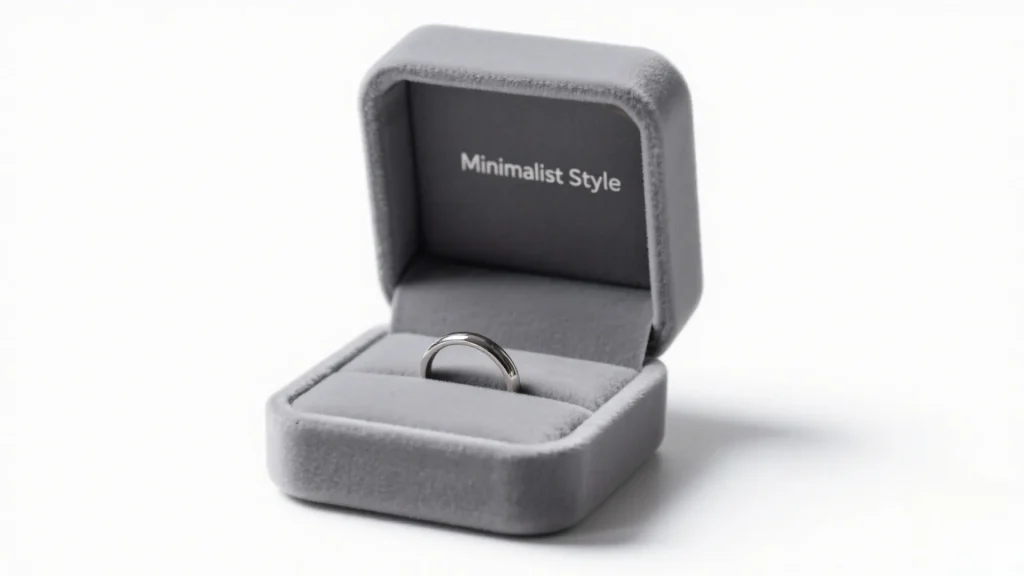
Currently trending are boxes in unique geometric shapes, especially hexagonal and octagonal designs for ring boxes. They offer a contemporary twist on a classic item.
Jewel tones like emerald, sapphire, and ruby remain classic luxury choices. At the same time, softer, more modern colors like dusty rose, sage green, and olive have become incredibly popular.
The world of jewelry packaging is constantly evolving. Today’s trends are driven by a desire for personalization, a commitment to sustainability, and ever-changing design aesthetics.
While classic colors are always in style, we are seeing a strong trend towards earthy and muted tones. Olive green, dusty rose, and taupe are popular for their sophisticated and understated appeal. In terms of texture, crushed velvet is making a comeback, offering a unique, light-catching surface that adds visual interest.
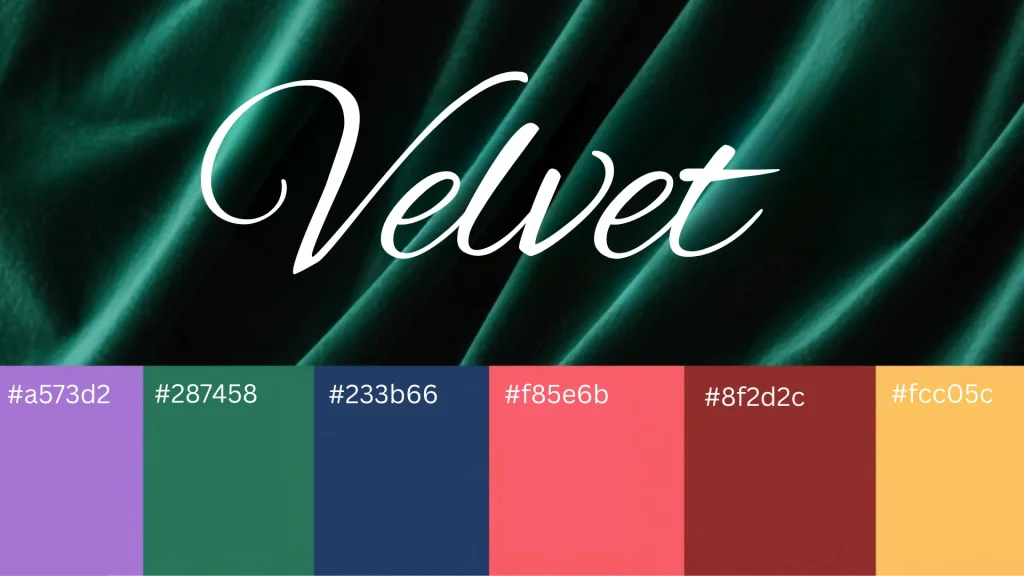
For jewelry brands, packaging is an extension of the brand itself. Customization is no longer a luxury; it’s a necessity. This can range from selecting a unique brand color for the velvet to adding a logo through embossing or foil stamping. While the choice of velvet defines the box’s initial touch and feel, the underlying design and manufacturing process determines its long-term integrity and brand impact. For global brands and wholesalers requiring predictable excellence, achieving this consistency across millions of units isn’t a matter of chance—it’s about an integrated design-to-delivery supply chain that ensures every box arrives on-time, on-budget, and to the exact same high standard.
Conversely, for emerging brands or marketing managers navigating the complexities of a new product launch, the right manufacturing partner does more than just take an order. They act as a strategic guide, transforming a concept—be it a sketch or a competitor’s sample—into a market-ready reality. This involves presenting clear, intelligent options: balancing innovative materials against cost-saving opportunities, navigating sustainable choices, and recommending design tweaks that elevate the final product. Ultimately, this partnership approach removes the risk of costly errors and ensures the packaging not only protects the jewelry, but actively contributes to the brand’s success.
Conscious consumerism has made sustainability a key factor in purchasing decisions. In response, the industry has developed innovative, eco-friendly velvet options. These are often made from recycled materials, such as polyester derived from post-consumer waste. These sustainable choices offer the same luxurious look and feel while aligning with the values of a modern, environmentally-aware customer base.
With the right care, your velvet jewelry box will remain beautiful for many years. Keeping it in pristine condition is straightforward if you follow the correct process, which we detail in our how to clean velvet jewelry box: a comprehensive guide. Follow the simple steps below for routine maintenance.
For regular maintenance, gently go over the surface with a soft-bristled brush or a lint roller. This will pick up any dust or lint without damaging the delicate pile of the fabric. Do this every few weeks to keep it looking fresh.
To prevent fading, store your jewelry box away from direct sunlight. It is also best to keep it in a cool, dry environment to avoid any risk of moisture damage or mildew. Proper storage is the easiest way to ensure its longevity.
Choosing a velvet jewelry box is more than a simple purchase; it’s an investment in the care and presentation of your most meaningful items. From the historical prestige of silk to the engineered resilience of modern microfiber, velvet offers an unmatched blend of gentle protection and timeless elegance. By understanding what defines true quality—from the sturdiness of the frame to the precision of the lining—you are now empowered to select a piece that not only organizes your collection but also brings a daily touch of luxury and order to your life.
Ready to create the perfect packaging for your brand? Contact our experts today for a custom consultation or explore our gallery of bespoke jewelry boxes to see what’s possible.
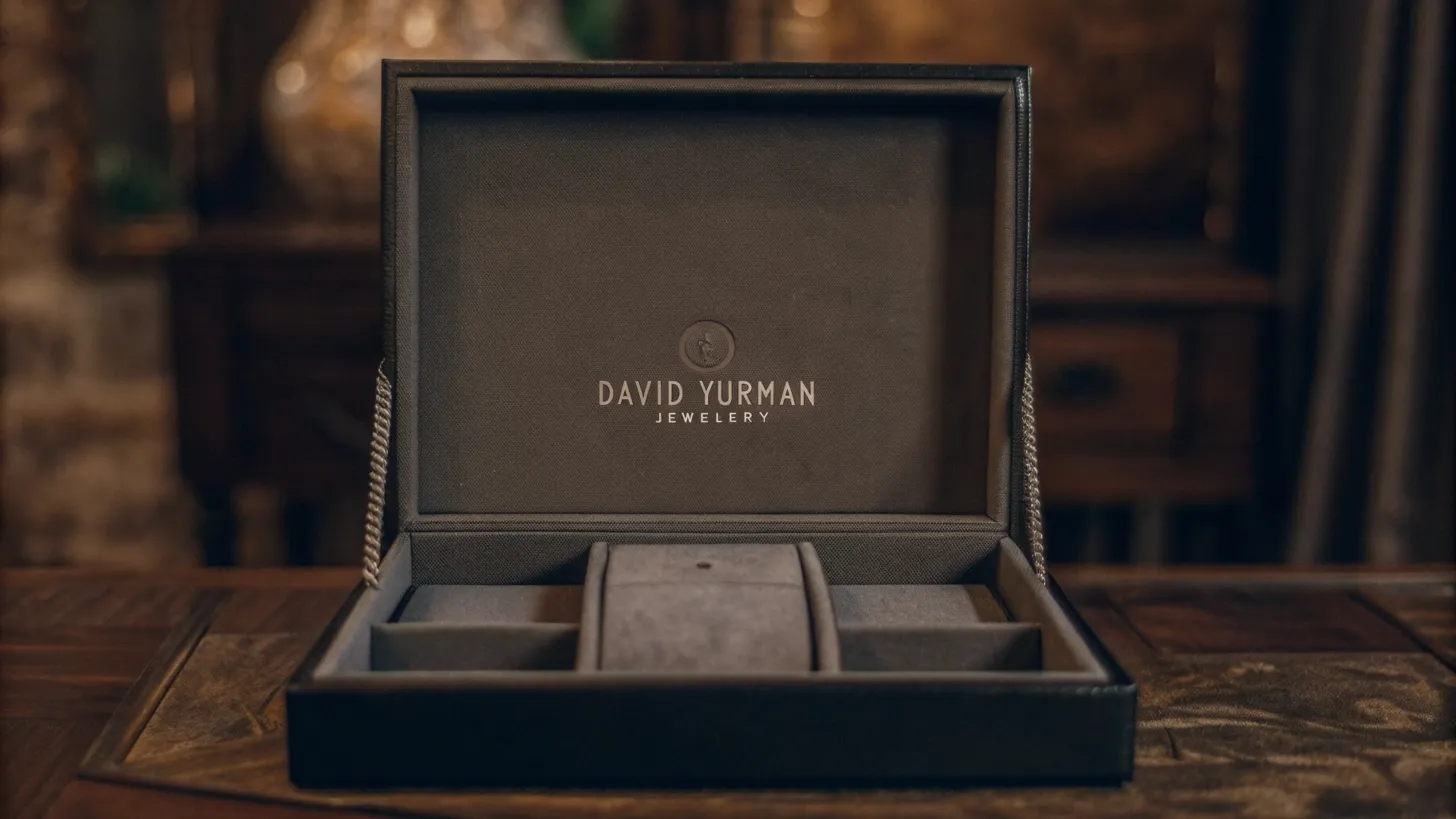
89% of packaging brands expect to make changes to their designs. This also includes David Yurman packaging respondents. In order not to lose in the competition, we should seriously study strategies to improve David Yurman packaging design. This article explores the 5 key ways define the future of David Yurman packaging, guiding brands toward creating unforgettable unboxing experiences. 1. Unveiling the David… Continue reading Velvet Jewelry Boxes: A Complete Guide
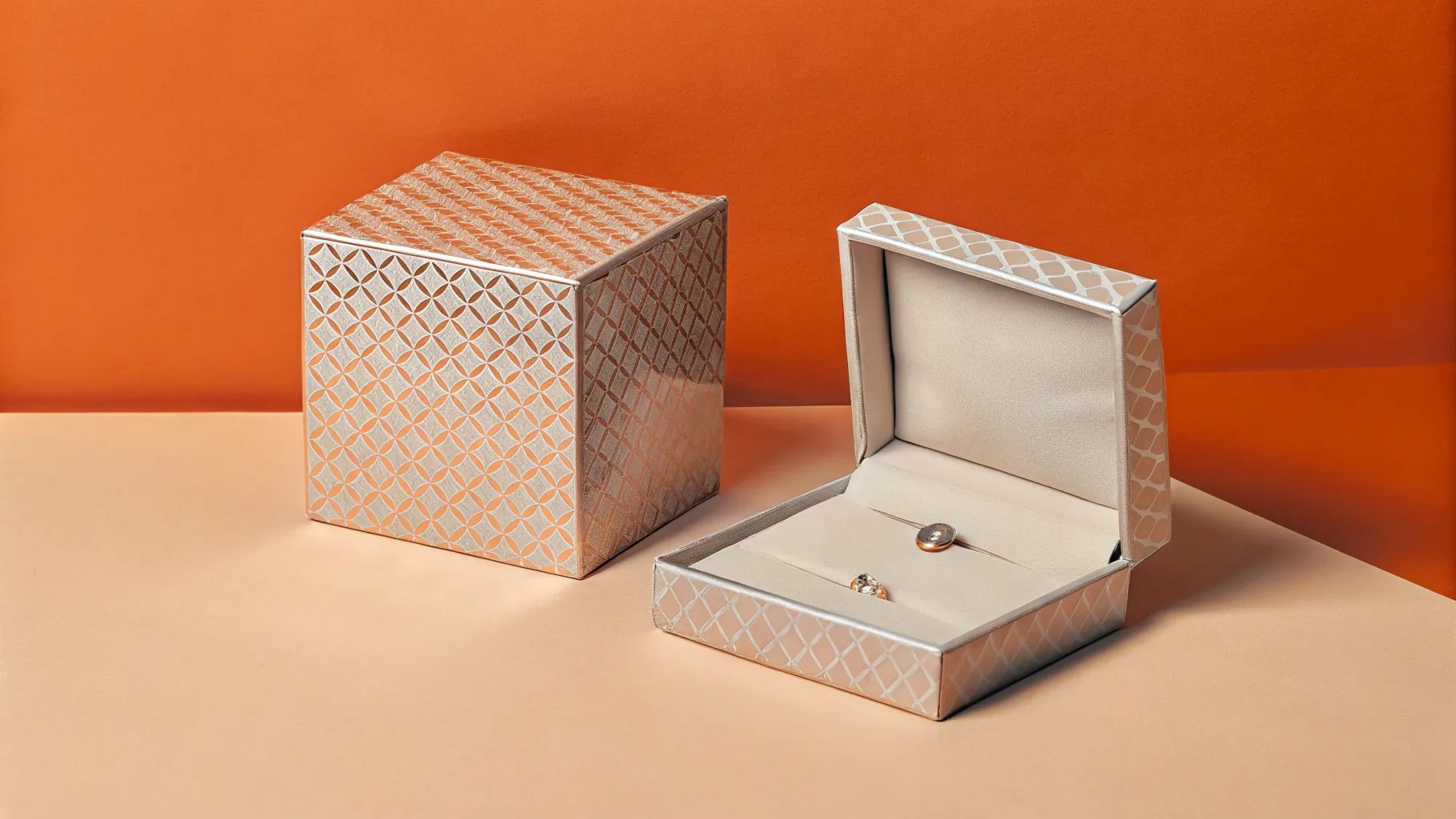
The jewelry box industry has its unique packaging language. Whether you are a jewelry designer, a small jewelry business, or a jewelry brand marketer, understanding these terms of customized jewelry packaging will help you design your personalized packaging and promote your business. This guide will walk you through the key steps and essential terms you need… Continue reading Velvet Jewelry Boxes: A Complete Guide
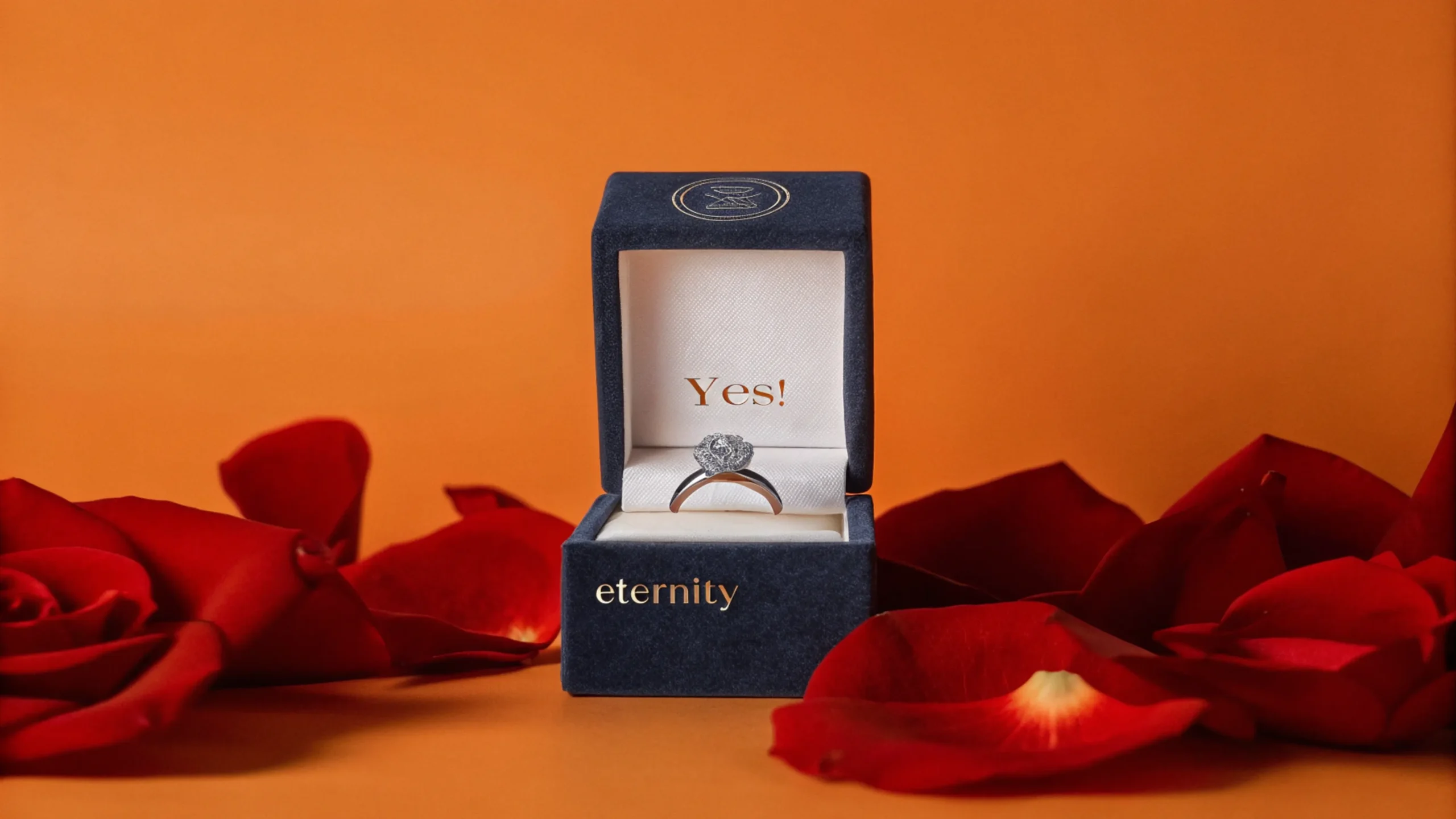
Alex finally found the one—the love of his life, Sophie, and the perfect custom ring box for proposal to make the moment unforgettable. When Sophie saw the unique engagement ring box—crafted from dark walnut with their anniversary date engraved inside—she gasped before even glimpsing the diamond. “I felt like it was made just for us,” she later… Continue reading Velvet Jewelry Boxes: A Complete Guide
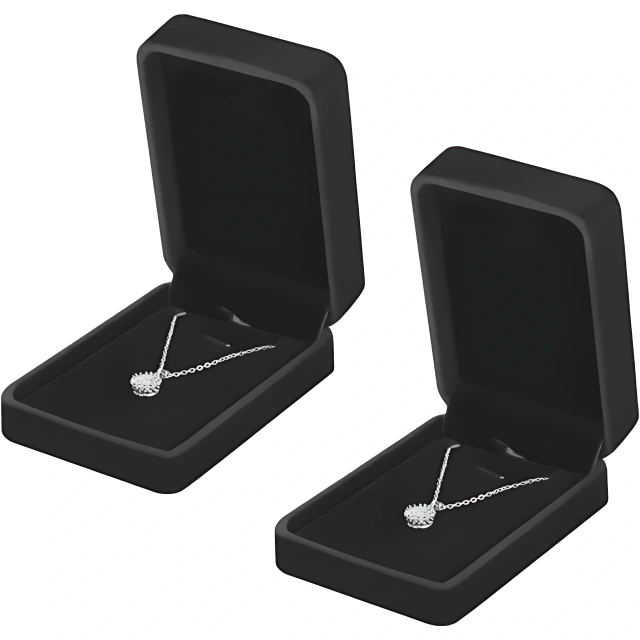
Compact And Chic Small Travel Jewelry Case – Secure Your Jewelry on the Move
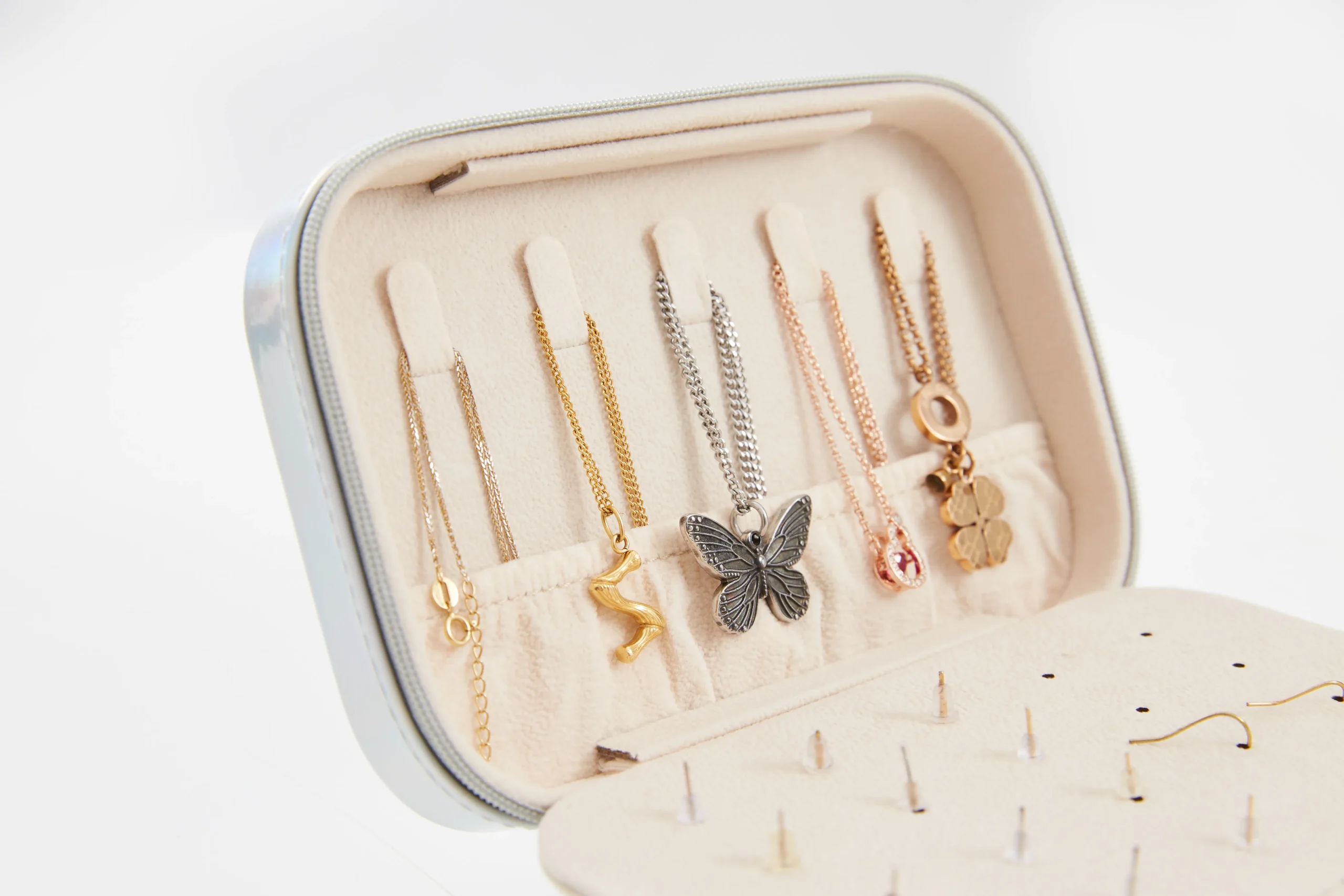
Creative DIY Jewelry Organizer Ideas for Home and Retail | Innovative Jewelry Organization DIY Solutions for Drawers and Displays
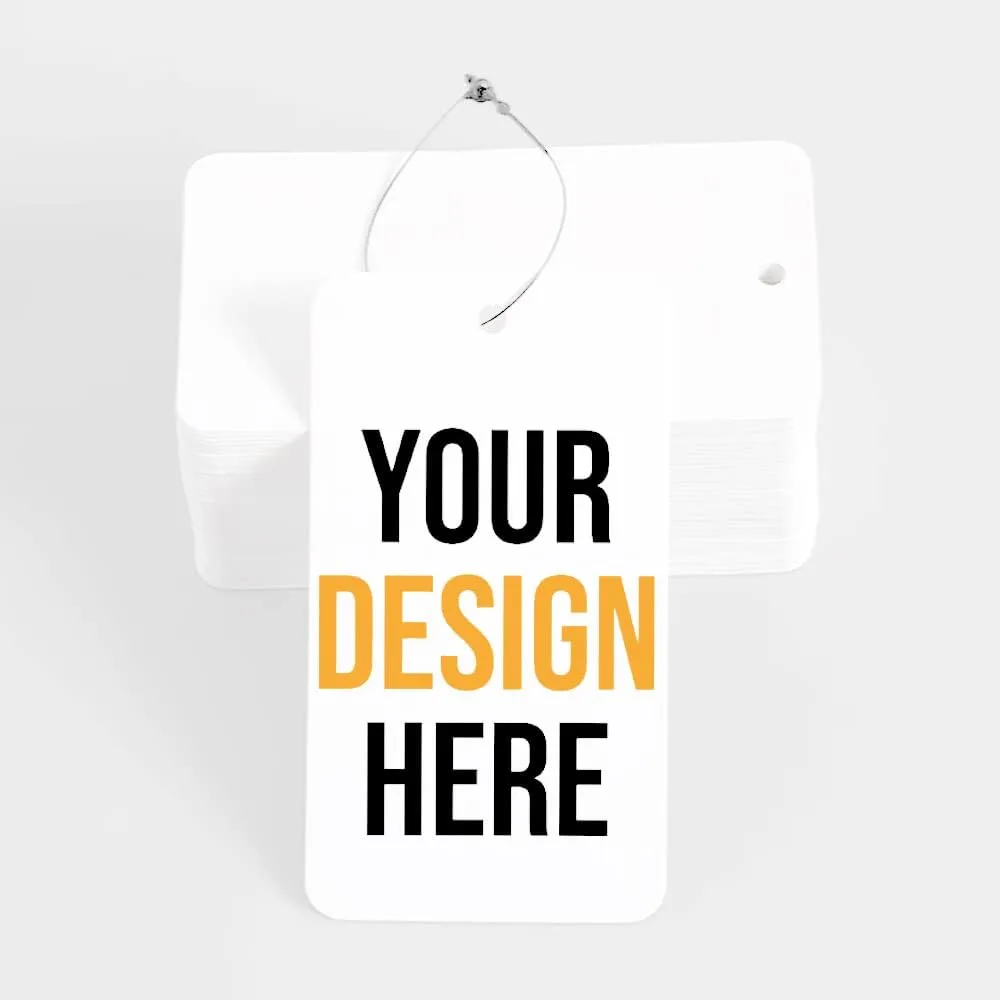
Custom Gift Cards with Branded Logos and Messaging | Richpack’s Tailored Solutions for Jewelry Stores Requiring Branded Packaging Options
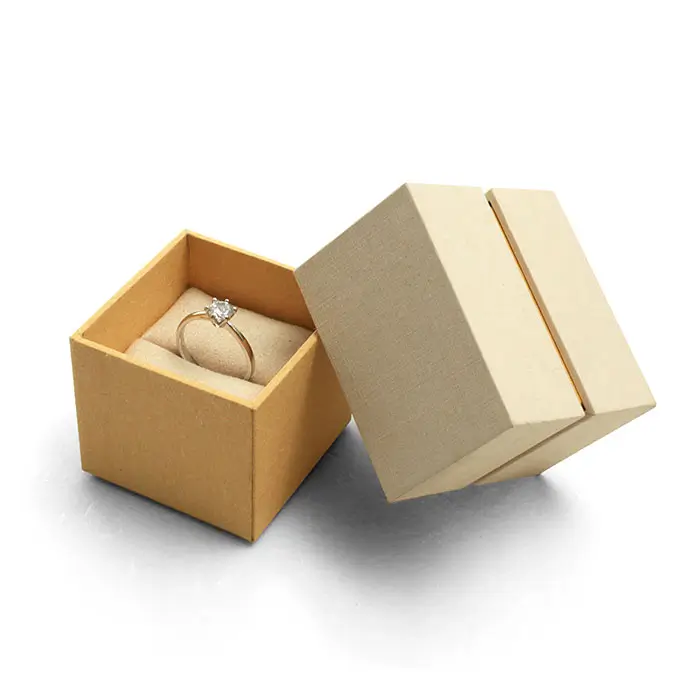
Affordable Gift Boxes with Custom Designs for Boutique Jewelers | Tailored Packaging Solutions | Budget-Friendly Options Available
View More
Bespoke Jewelry Boxes with Personalized Branding for Jewelry Labels | Tailored Packaging Solutions for Retailers
View More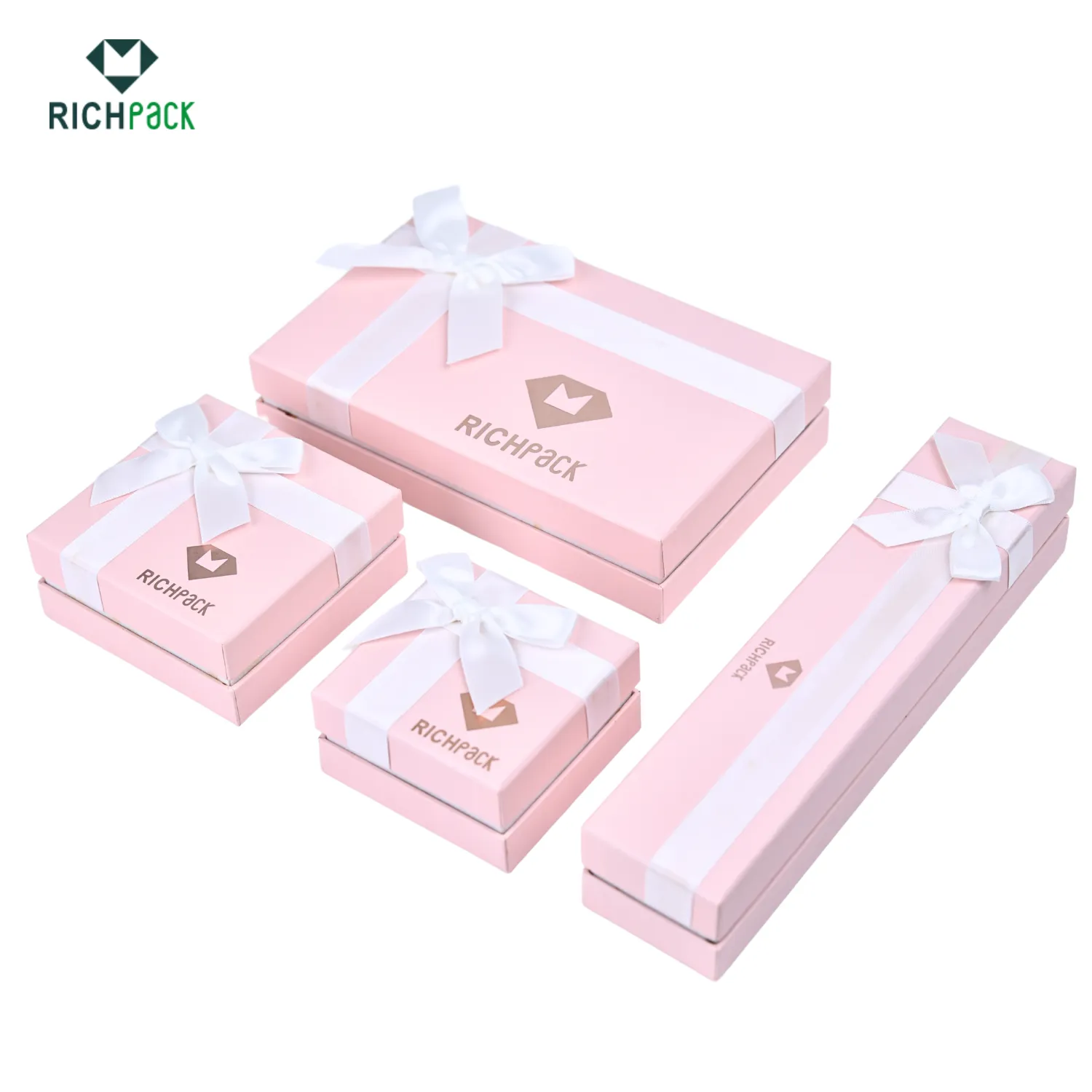
Bulk Gift Boxes for High-Volume Buyers with Custom Branding | Cost-Effective Solutions for Wholesale Purchases
View MoreJust submit your email to get exclusive offers (reply within 12 hours)